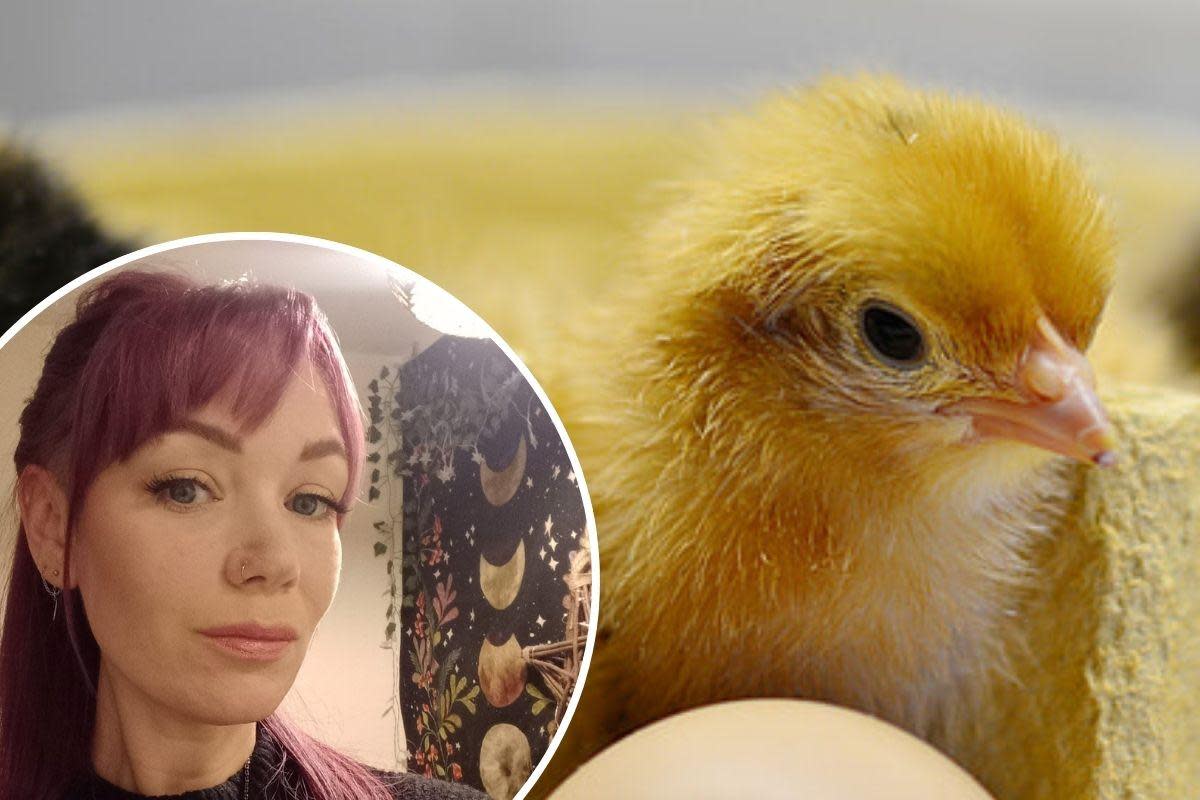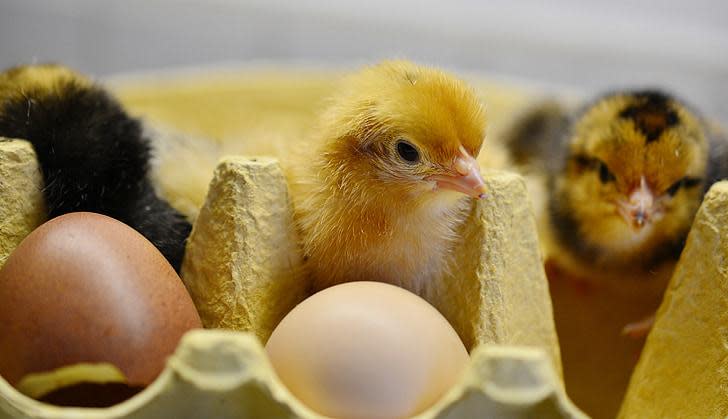Colchester school accused of 'using animals as commodities' for chick-hatching scheme

A COLCHESTER school has been criticised over its chick hatching programme by the RSPCA and a former employee who accused staff of "using animals as commodities".
Hamilton Primary School, in Constantine Road, has come under fire for its educational initiative which sees chicks hatched on-site.
Bosses at the school have reassured parents the scheme is all above board but former midday assistant at the school, Kate Baines, 30, feels otherwise.
She says while working at what is the most subscribed primary school in the city this year she raised concerns on several occasions to the headteacher.
Kate feels it is wrong for baby chicks to be kept in incubators “in a little box in a very loud classroom” and outside of their natural environment.

Assistant - Kate Baines was a former 'mid-day' assistant at Hamilton Primary School (Image: Submitted)
She also says despite there being a risk assessment carried out there is still “a health risk” to children while using chick hatcheries.
Kate added: “Morally we know that we don’t need to be using these animals as commodities, so we know better and should do better.
“You can take children to sanctuaries, and there are internet resources.
“In 2024, there is no such need for live animals.”

Popular- Primary School chick hatchings are popular class-room aids for Primary schools across Britain (Image: PickPix)
Experts at the RSPCA have since said it is “important for children to learn about animals” and they “can understand why schools and nurseries may look to hatching chicks or ducks”.
However, where possible, they would advise against chick hatching programmes in schools.
A spokesman said: “Schools can be noisy and frightening for animals, and because the school day is relatively short and the eggs may hatch at any time, it could be difficult to monitor the welfare of the animals, and seek veterinary advice if they fell ill.
“It’s also not as easy as people may think to find an appropriate home for the animals once they are fully grown.”
“We believe that animal welfare can be taught in other ways and encourage schools, parents and carers to find out more from the RSPCA education website.”

Community - Hamilton Primary School said it was aware that some people in the school community would prefer not to have a chick hatching programme (Image: Submitted)
Bosses at Hamilton Primary School have now responded.
A spokesman said: “Hamilton Primary School is aware some of its community would prefer we did not host a chick hatching programme to help our children learn about looking after animals.
“The school has provided notification of the project to enable the community to understand why we plan to undertake this activity.
“We are using a company which clearly states what happens to the chicks after the project is completed and all children will be supervised during the time that the chicks are in the class.
"All health and safety concerns are covered through an appropriate risk assessment.”

 Yahoo News
Yahoo News 
